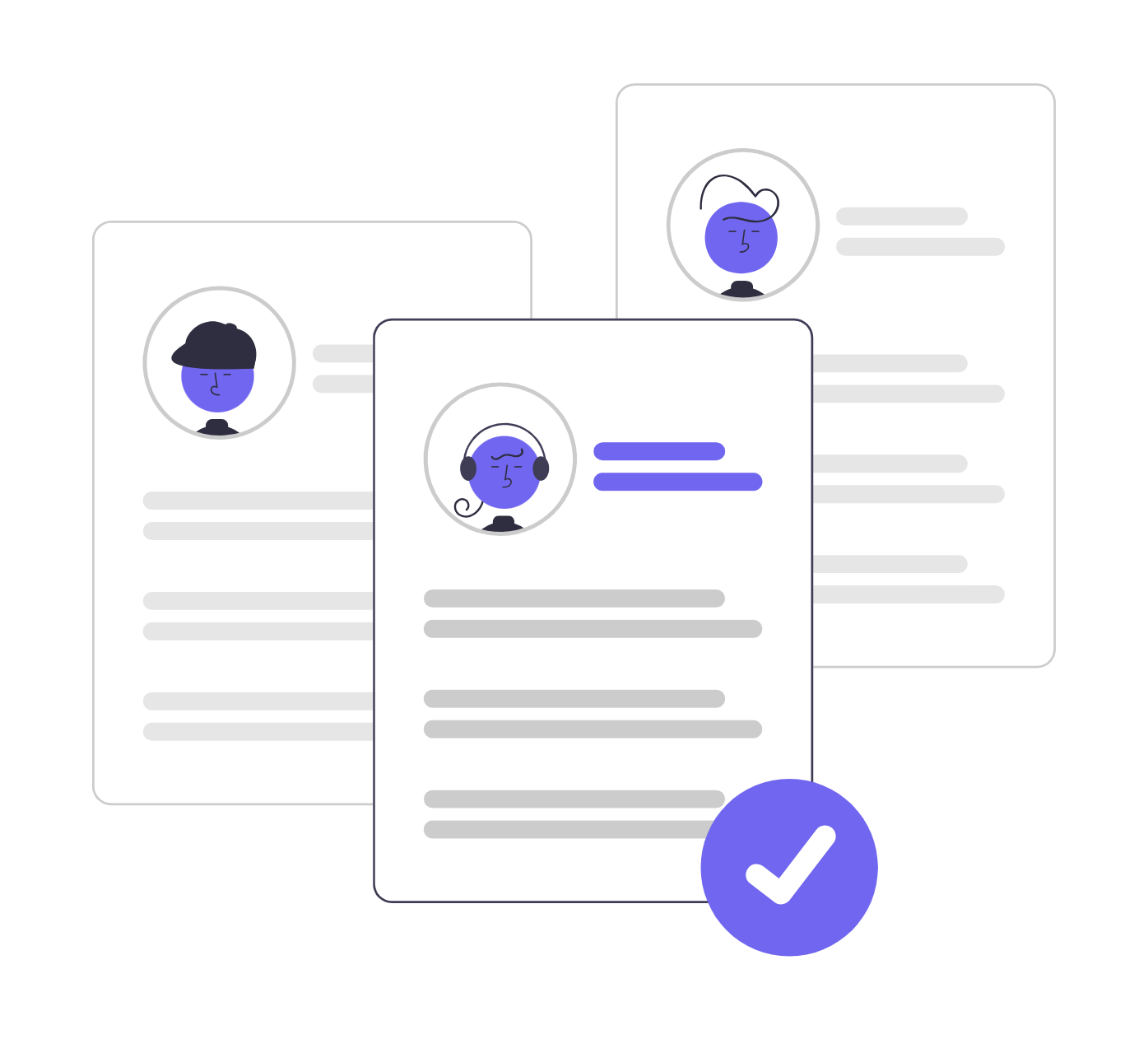Share
In today’s job market, hiring the right person isn’t just about technical qualifications or impressive résumés. It’s about finding individuals who can lead without dominating, adapt without breaking, and connect without pretension. In short—it’s about emotional intelligence.
Emotional intelligence, or EQ, has become one of the most powerful predictors of success in the modern workplace. Yet, too many companies overlook it. Here’s why that’s a costly mistake—and how you can fix it by identifying emotionally intelligent candidates before your competitors do.
What Is Emotional Intelligence (EQ), Really?
Emotional intelligence is more than just being “nice” or “good with people.” At its core, EQ is the ability to recognize, understand, manage, and influence emotions—both your own and those of others.
Psychologists commonly break down EQ into five major components:
- Self-awareness – Recognizing your own emotions and how they impact your thoughts and actions.
- Self-management – Controlling impulses, adapting to change, and managing stress effectively.
- Social awareness – Understanding the emotions, needs, and concerns of others.
- Relationship management – Building strong, healthy relationships through effective communication and conflict resolution.
- Empathy – Truly grasping what someone else is feeling, and responding with care.
Together, these traits enable people to navigate complexity, collaborate under pressure, and lead with both head and heart.
Quickly identify your most promising candidates. WorkScreen automatically evaluates, scores, and ranks applicants on a performance-based leaderboard—making it easy to spot top talent, save time, and make smarter, data-driven hiring decisions.

Why Hiring for EQ Outperforms Traditional Metrics
Studies have shown that EQ-related competencies account for up to 80% of the abilities that differentiate top performers from average ones. High-EQ employees don’t just meet expectations—they elevate them.
Here’s what emotionally intelligent employees bring to the table:
- They lead without ego, often showing strong potential for management.
- They stay composed in ambiguity—ideal for hybrid and fast-paced environments.
- They de-escalate conflict, build trust, and strengthen team morale.
- They work well remotely, maintaining accountability and engagement without constant oversight.
In contrast, low-EQ hires may have the right credentials but leave behind friction, disengagement, or communication breakdowns that slowly erode team performance.
Eliminate low-effort applicants—including those who use AI Tools to apply, copy-paste answers, or rely on "one-click apply." This way, you focus only on genuine, committed, and high-quality candidates—helping you avoid costly hiring mistakes.

Key Traits of Highly Emotionally Intelligent Candidates
Emotionally intelligent people reveal themselves in how they react under pressure, how they relate to others, and how they talk about failure and growth.
Here are some defining behaviors to watch for:
- They pause before reacting – Rather than snapping or shutting down, they take a beat to process and respond with clarity.
- They name their emotions precisely – Instead of vague labels like “stressed,” they say “I was frustrated because I wasn’t being heard.”
- They accept feedback openly – Even when it stings, they reflect instead of getting defensive.
- They apologize sincerely – They don’t let pride get in the way of relationships.
- They set boundaries – Compassion doesn’t mean people-pleasing. High-EQ individuals know how to say no without hostility.
- They read the room – They pick up on social cues and know when to speak, listen, or give space.
- They comfort without fixing – Instead of offering generic advice, they help others feel seen and supported.
- They handle conflict maturely – They seek resolution, not victory.
Easily administer one-click skill tests using workscreen. -This way you can Assess candidates based on real-world ability—not just credentials like résumés and past experience. This helps you hire more confidently and holistically.

Interview Questions That Reveal Emotional Intelligence
The best way to evaluate EQ is through behavioral interview questions that ask candidates to reflect on past experiences. Here are some examples matched to key EQ competencies:
 Self-awareness:
Self-awareness:
- “Tell me about a time when you received tough feedback. How did you respond, and what did you learn?”
 Empathy:
Empathy:
- “Describe a time you had to deliver difficult news to a colleague or team member. How did you approach it?”
 Relationship management:
Relationship management:
- “Have you ever worked with someone who was difficult for others to collaborate with? How did you build a working relationship?”
 Self-management:
Self-management:
- “How do you handle stress when juggling competing deadlines?”
 Social awareness:
Social awareness:
- “Tell me about a time you noticed a conversation or meeting wasn’t going well. What did you do to course-correct?”
The key isn’t just what they did, but how they reflect on the situation—do they show awareness, learning, growth, and care?
Red Flags: Signs a Candidate Lacks Emotional Intelligence
EQ gaps aren’t always obvious. But in interviews, there are patterns that reveal themselves. Here’s what to look out for:
- They deflect responsibility – Blaming others for setbacks or conflicts.
- They dismiss emotions – Saying things like “I just get over things quickly” without showing depth.
- They struggle with vulnerability – Unable to admit mistakes or reflect on failure.
- They speak in absolutes – Using terms like “always,” “never,” or “everyone” can suggest rigid thinking.
- They interrupt often or dominate conversation – Signals a lack of social awareness or empathy.
While one red flag may not be disqualifying, a pattern of them can indicate trouble ahead—especially in roles requiring collaboration, adaptability, or leadership.
How to Build EQ Assessment into Your Hiring Process
To make emotional intelligence part of your hiring DNA, consider the following:
- Incorporate EQ-based interview questions for every role—not just leadership positions.
- Create structured evaluation scorecards to reduce bias and keep the assessment fair.
- Involve multiple interviewers and ask each to focus on one EQ trait.
- Simulate collaboration with role-plays or task-based scenarios to observe behavior under pressure.
- Be transparent—let candidates know that self-awareness, empathy, and growth matter to your team.
The Payoff: Why EQ-Driven Hiring Leads to Better Teams
Emotionally intelligent hires create a ripple effect. They foster healthier cultures, make better decisions under stress, and model the kind of communication that builds trust and resilience.
Over time, EQ-driven hiring leads to:
- Higher retention
- Healthier team dynamics
- Greater psychological safety
- A stronger bench of future leaders
In a world full of hard skills and AI-enhanced résumés, emotional intelligence remains distinctly human—and increasingly rare. That’s exactly why it’s so valuable.
Final Thoughts
Hiring someone with strong emotional intelligence might not give you a resume packed with buzzwords—but it will give you a teammate who can navigate conflict with grace, adapt to change with optimism, and elevate everyone around them.
And those are the people who build companies that last.
FAQ
Emotional intelligence (EQ) refers to a person’s ability to recognize, understand, and manage their own emotions and the emotions of others. This includes traits like empathy, self-awareness, emotional regulation, and social skills.
Technical skills, on the other hand, are the hard skills or domain-specific knowledge required to perform a task—such as coding, writing, accounting, or operating machinery.
In hiring, technical skills show what someone can do. Emotional intelligence reveals how they do it—especially under pressure, in teams, or when facing conflict.
Because work isn’t just about completing tasks—it’s about collaboration, communication, and adaptability. Emotionally intelligent employees:
- Handle stress and feedback better
- Resolve conflicts more constructively
- Build stronger relationships with teammates and clients
- Lead with empathy and earn trust
In today’s fast-paced, team-oriented, and often remote work environments, EQ often determines whether someone thrives or derails.
Look beyond resumes. Use structured behavioral questions like:
- “Tell me about a time you received difficult feedback. How did you respond?”
- “Describe a conflict you had at work. What did you do to resolve it?”
Pay attention not just to what they say, but how they say it—do they take accountability? Show empathy? Reflect on growth?
You can also use role-play scenarios, group interviews, or EQ assessments to go deeper.
Emotional intelligence can absolutely be developed over time. While some people have a natural head start, self-awareness, active listening, empathy, and emotional regulation are all skills that can be learned through coaching, feedback, and experience.
That’s why many companies invest in EQ development programs for both new hires and leaders.
In many roles—especially customer-facing, leadership, or team-intensive ones—yes. A technically skilled employee who lacks emotional intelligence can hurt team morale, create conflict, or damage client relationships.
It’s often better to hire a slightly less technically experienced candidate with strong EQ—skills can be taught, attitude and empathy are harder to instill.

